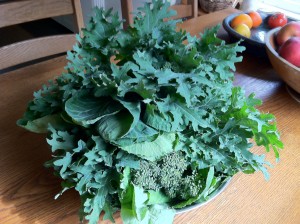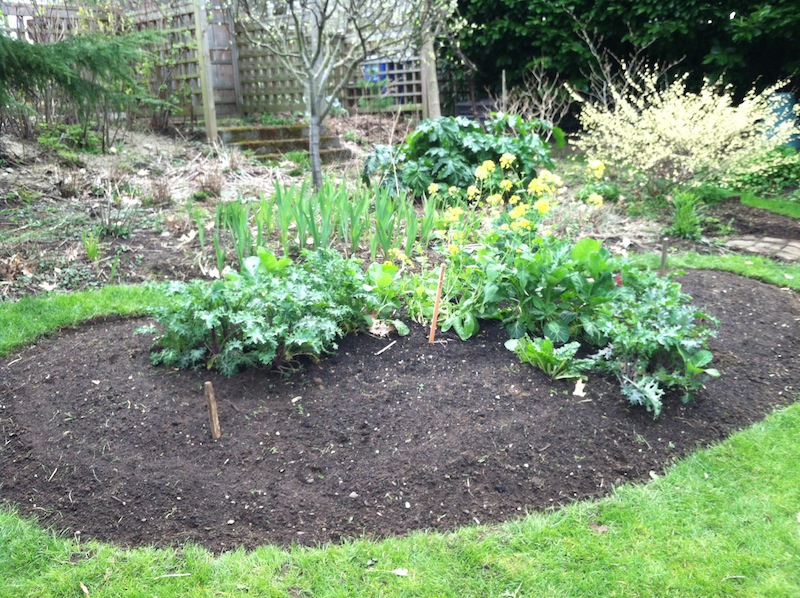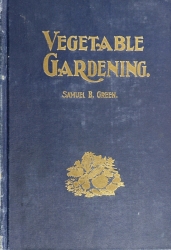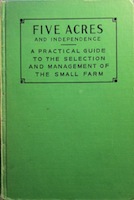
It’s the middle of March, thank goodness! We won’t have winter much longer, though right now summer seems like years away…
Even in the middle – or late – winter gardeners dream about their gardens as they pour over the dozens of plant and seed catalogs that have arrived in the mail. How else do we get through these last weeks of cold, slush, rain, and grey days?
OK, maybe Puxatawney Phil was a little optimistic (ha!) for some parts of the country where the first day of Spring is hiding underneath the snowdrifts! If you’re in a part of the country still in the deep freeze, you can get those seeds ordered and start them indoors; if you’re lucky and you’re in a more temperate location, get out and get those seeds in the ground!
Here in Seattle, we’re on the lucky side, and while we’ve been harvesting winter and over-wintered greens (native, feral, and sewn), we seeded a few cool weather plants over the weekend. Four kinds of beans, two varieties of spinach, and some mustard. Thank goodness they all wait patiently for the time when the soil gets above 40 at night! Oh, yes, and 125 new strawberry plants!

We’re not alone in growing fruits and vegetables in our yard, the Garden Writers Association Foundation reports in 2013 Winter Gardening Trends Research Report that roughly 55.5 million American households have grown edible plants – fruits, vegetables, and herbs – since 2009. And that number increased by 11.3% in 2013.
Did you know that gardeners now spend as much to grow vegetables and fruits as they do for lawns, tress, shrubs and flowers? What better way to guarantee your own food security!
 Gardening not only provides a connection with nature, it connects us to our food. As more and more people are concerned about the provenance of their food – where it came from and how it was grown – gardening has given “local” a new meaning: “Zero Food Miles.”
Gardening not only provides a connection with nature, it connects us to our food. As more and more people are concerned about the provenance of their food – where it came from and how it was grown – gardening has given “local” a new meaning: “Zero Food Miles.”
During both World Wars, families in the U.S. and Europe planted Victory Gardens; it was a time when everyone gardened. During World War I, as many as 5 million gardens were planted and during World War II the number grew to 20 million. In 2008, according to the National Gardening Association, 36 million households grew vegetables, fruits, berries and/or herbs in family or community gardens and 43 million had plans to garden in 2009.
Garden Books
You’d have to have your head in the dirt to miss all the garden books in every bookstore and garden center, not to mention on the Internet. It’s clearly Spring and growing season!
 But these are not your garden-variety garden books! This selection of seven books from the GoodFood World library has not been chosen to tell you how to design, construct, and grow your garden. They are to inspire your thinking, to get those creative juices flowing.
But these are not your garden-variety garden books! This selection of seven books from the GoodFood World library has not been chosen to tell you how to design, construct, and grow your garden. They are to inspire your thinking, to get those creative juices flowing.
It’s a mixed (book) bag of reading material offers the spirit of the garden from authors as varied as Japanese, Native American, and French. We’ve even included a book about a 17th century garden that is still producing in England.
And if that’s not enough, here are five more timeless books that span a critical period in American agriculture – the 1880s through the early 1940s. Before the development of agro-chemicals as an off-shoot of chemicals used in both World Wars, farming methods were naturally “organic.” These books, while considered somewhat dated today, are our grandfathers and great-grandfathers teaching us how to care for the land and animals.
 Pull a chair up to the fire, have a hot cup of tea, and read away these chilly, rainy spring days!
Pull a chair up to the fire, have a hot cup of tea, and read away these chilly, rainy spring days!
Seed Sources
Ready to get started? Buying starts and seeds from local growers and at local sales ensures that you get plants that are climate-appropriate. If your mailbox hasn’t been full to bursting with seed catalogs, here are a few that show up in ours:
Wild Garden Seeds
Philomath, OR
541-929-4068
Territorial Seed Co.
PO Box 158, Cottage Grove, OR 97424
800-626-0866
Uprising Seeds
2208 Iron St, Bellingham, WA 98225
360-778-3749
Abundant Life Seeds
Saginaw OR
Adaptive Seeds
25079 Brush Creek Road, Sweet Home OR
Seed Savers Exchange
3094 N. Winn Rd., Decorah, IA 52101
563-382-5990
Seeds of Change
PO Box 152, Spicer, MN 56288
888-762-7333
High Mowing Organic Seeds
76 Quarry Rd., Wolcott, VT 05680
802-472-6174
Johnny’s Selected Seeds
955 Benton Avenue, Winslow, ME 04901
877-564-6697

